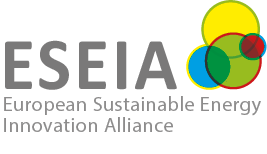ESEIA Student Camp 2017
The second BioEnergyTrain Student Camp will be hosted by Energy Agency Styria and will take place on
26 February and will end on 2 March 2018 in Graz, Austria.
Join our interdisciplinary student camp and work alongside our experts to develop solutions for real-life challenges of the regional bio-based economy. You will expand your network, meet national and international professionals and experience interesting excursions!
You and your team will work on one of the following real-life challenges:
Challenge 1 “Accomplishing Climate Protection Goals”
Problem Owner and contact: Administration of the Federal Government of Styria (DI Dieter Preiß, Department for Energy and Building)
The Styrian Climate and Energy Strategy will be published in early 2018 and will be the strategic guideline for reaching Styria’s climate protection goals. Essential stakeholders were partners in developing the strategy, consisting of eight main fields of action such as energy efficient buildings, sustainable mobility, forestry, energy production and resource-saving life style. The goal of this challenge is to develop a set of implementable measures for a field of action, selected by the group of students. How can the strategy’s objectives be achieved in this specific field?
Challenge 2 “Biomass – Reaching The Masses”
Problem Owner and contact: Styrian Chamber of Agriculture / Austrian Biomass Association (Dr. Christian Metschina, Head of Department Energy, Climate and Bio Resources of Styrian Chamber of Agriculture )
In Austria, Biomass can be considered as the most important renewable energy carrier. However, other renewable alternatives such as photovoltaic and hydro power are much higher accepted by the public. This perception shall be changed to a more positive image, using specific and target group oriented media campaigns. Questions to be worked on during the student camp are: What are success factors for such campaigns? How can the public acceptance for biomass as energy carrier be increased effectively?
Challenge 3 “Circular Bio-Economy Mureck – continuously innovative”
Problem Owner and contact: BioEnergie Mureck / SEBA Mureck ( ÖkR Karl Totter, founder)
The region Mureck is a pioneer in integrated and decentralized bio energy production. Since decades, local bio resources are innovatively used within a sustainable energy and resource cycle. Several valuable initiatives such as biodiesel and biogas production, photovoltaic with citizen participation and local heating network enables Mureck to partly operate self-sufficient, even in case of an energy blackout. Questions to be worked on during the student camp are: Which elements of the energy and resource cycle could be models for other regions? How can the circular economy in Mureck be extended sustainably?
Challenge 4 “Bio Based Products From Municipal Solid Waste”
Problem Owner and contact: Administration of the Federal Government of Styria (Dr. Ingrid Winter, Head of Department Waste Management and Sustainability
Municipal solid waste is disposed by every citizen – it is everything which is thrown in the bins or brought to the local recycling. If we take a look at it closely, a lot of this material are bio-resources – e.g. kitchen waste, garden waste or waste wood. Use your creativity and develop new products out of these waste streams! How can the extraction of the necessary secondary raw materials function?
The core part of the Student camp is based on interactive and autonomous group work within interdisciplinary teams. Participants will take part not only to lectures but also to excursions to institutions working in the bioenergy sector, in order to see how theory is put into practice. Academic supervision is provided by national and international experts of the Graz University of Technology, Austria, and the University Twente, Netherlands. The organisations and institutions that formulated the four real-life challenges will participate to the camp week as well.
Download here the preliminary Timetable.
Student profile: Master and PhD students from every discipline is welcomed.
Cost: € 240 including accommodation at Jufa Hotel Graz Süd, lunches, lectures, workshops, course materials and excursion. If no accommodation is needed, the participation fee is reduced to € 120. For long distance travels, you can apply for financial support at your university!
Application deadline: 31st January 2018.
Academic recognition: 3 ECTS
Venue: Stempfergasse 7, 8010 Graz, Austria

